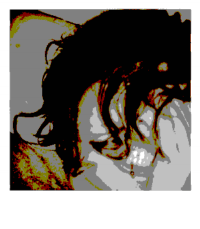 |
| from http://fc08.deviantart.net/fs41/f/2009/051/8/2/34_faces_by_Ginjutsu.gif |
Schizophrenia is a biological illness of the brain.
It is a medical condition in the same way that multiple sclerosis and diabetes are.
The onset of the illness occurs most often in late teens to early 20's. It can strike people in any country or culture, rich, poor, or middle class: There is a 1% chance of getting the illness for all of us.
Schizophrenia is made up of phases:
1. Prodromal Phase
- Changes in behaviour e.g. isolating, deteriorating school or work performance, poor grooming and hygiene
- Changes in mood e.g. irritability, depression
- Changes in thinking e.g. poor concentration, poor attention, confusion, suspiciousness
- Physical changes e.g. disturbed sleep, poor appetite, and low energy
 |
| from http://i12.photobucket.com/albums/a210/JRuff/Other%20Images/TandP%20Screengrabs/Animated%20gifs/tmn-combing_hair.gif |
There are more of the so-called 'positive' (added on) symptoms.
These symptoms are most helped by medication. Hospitalization may be required but many people can be treated in the community.
- Delusions
- Hallucinations
- Disordered thinking
- Agitation
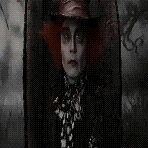 |
| from http://fc01.deviantart.net/fs70/f/2009/352/5/f/The_Mad_Hatter_by_Lestat_Cullen.gif |
There are more of the so-called 'negative' (taken away) symptoms
While medication is still required, this phase is most helped by 'living skills' training and other psychological and social treatments:
- Impoverished speech and thought
- Blunted emotions
- Poor hygiene Social withdrawal
- Decreased motivation
- Decreased social/occupational functioning: living skills deficits result directly from illness
 |
| from http://www.ninhadesign.com/Nova%20Pasta/lixo.gif |
The illness stabilizes and may resolve. People can then increase their level of functioning often returning to school, work, training programs, volunteer work, etc.
Schizophrenia affects individuals differently. We don't see all symptoms in any one person. Different symptoms may occur at different phases of the illness.
DIAGNOSIS
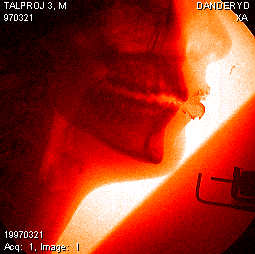 |
| from http://jeffmilner.com/2009/11/bothred.gif |
WHAT CAUSES SCHIZOPHRENIA?
Schizophrenia is a biological illness of the brain. There are various theories as to the cause:
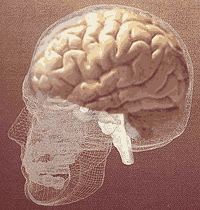 |
| from http://www.brainchannels.com/evolution/evolutionmedia/dopaminepathway.gif |
There is not only too much dopamine but there is an imbalance in dynamic function of parts of the brain. For example when asked to make a list of words people with schizophrenia on average are less able. This is reflected by one area of over activity in the brain where the task is actually done and a different area of under activity which normally 'quiets down' after brain activity to allow the task to be done.
 |
| from http://i14.photobucket.com/albums/a324/martin_fierro/Genetic%20Genealogy/dna_animated.gif |
Studies have been done with identical and fraternal twins. Studies have also been done with children who have been adopted. There is a strong indication that schizophrenia runs in some families but not all (there is an inherited component to some cases). Those with an identical twin who has schizophrenia have a 40% chance of also having the disease. If both parents have schizophrenia, one has 36.6% chance of also having schizophrenia. With one parent, the risk is 9.4%, one grandparent, 2.8%, one sibling 7.3%, a first cousin 1.6%. These and many other more modern studies suggest that while genetics is important it is not the only cause.
Immune System Theory:
People with schizophrenia are unlikely to have rheumatoid arthritis and have a lower lung cancer rate (even though many smoke) indicating differences in the immune system. There is an increase in the number of late winter births for people with schizophrenia and some postulate therefore that perhaps a viral infection during pregnancy in those predisposed by a slightly different immune system may be a cause of schizophrenia.
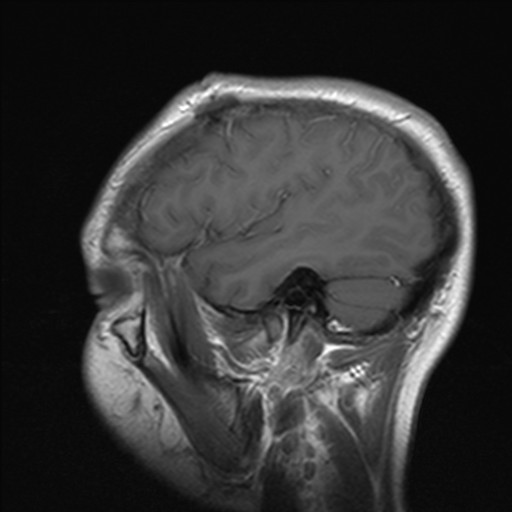 |
| from http://www.thehippy.net/gallery/albums/Other/AnimatedBrain1.gif |
Some people with schizophrenia show subtle abnormality in brain structure. For instance on MRI (brain scan) some people show an abnormal structure of the thalamus (central routing system in the brain). In others, the finding has been that pre-alpha cells in the posterior sylvan fissure fail to migrate to upper layers. The fact that there are structural abnormalities in the brain does not necessarily mean that the effects of the illness are irreversible. In fact, the more we learn about these subtle changes, the more there is hope for better treatment and in future perhaps a "cure". As yet these findings cannot be used to test individuals for schizophrenia.
Multi Factorial Theory:
A combination of what's already been discussed and/or other unknown factors are likely responsible for the illness.
WHAT DOESN'T CAUSE SCHIZOPHRENIA?
FAMILIES
NOT a cause
STRESS:
Schizophrenia is a stress sensitive illness. Stress can make one's symptoms worse but it doesn't cause the illness.
 |
| from http://www.pirweb.org/Site/images/CAPSULE_ANIMATED.GIF |
Street drugs tend to increase symptoms as they increase dopamine. They can worsen the course of the illness and make it more difficult for the person to respond to the medication as long as the person continues to use the drugs. If they stop using the drugs, they will recover much faster.
PSYCHOLOGICAL FACTORS:
These also don't cause schizophrenia but may influence the illness, as it is stress sensitive.
Schizoaffective Disorder is a combination of bipolar (mood disorder with very high mood at times and/or very low mood at times) and schizophrenia symptoms. It is less common than schizophrenia and historically, there has been some disagreement about its nature. It was thought that it was either schizophrenia or bipolar disorder or a separate syndrome altogether. It is now regarded as a separate syndrome. Overall, the prognosis for schizoaffective disorder may be somewhat better than for schizophrenia. Treatment may include mood stabilizers plus antipsychotic medication.
.gif)
No comments:
Post a Comment